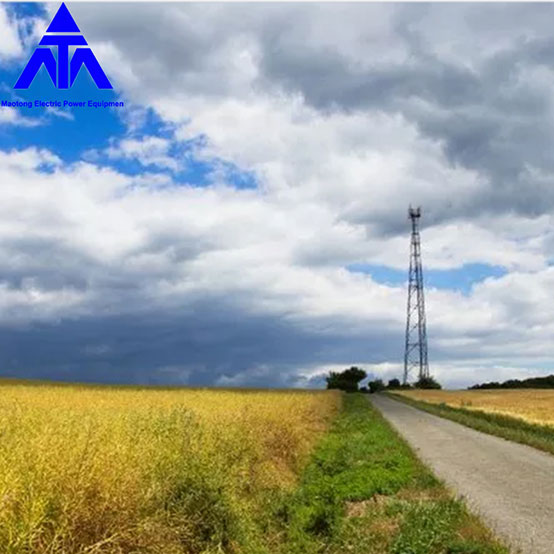Meeting the Structural Demands of 5G Networks: Essential Characteristics of High-Density Telecommunication Tower Steel Pipes
2024-02-20
In the era of 5G connectivity, where speed, reliability, and capacity are paramount, the structural integrity of telecommunications infrastructure is more critical than ever. High-density telecommunication tower steel pipes play a central role in supporting the deployment of 5G networks, providing the sturdy foundation needed to accommodate the increased density of antennas, equipment, and technologies. To meet the rigorous demands of 5G networks, high-density telecommunication tower steel pipes must possess specific characteristics in terms of weight, strength, and durability. Let's delve into these essential characteristics and their significance in supporting the structural demands of 5G networks.
1. High Strength-to-Weight Ratio
As 5G networks require denser deployments of antennas and equipment, high-density telecommunication tower steel pipes must offer a high strength-to-weight ratio. This characteristic ensures that the pipes can support the added load of antennas and equipment while minimizing the overall weight of the tower structure. By providing strength without excessive weight, these steel pipes enable the construction of taller towers capable of accommodating multiple antennas and meeting the coverage requirements of 5G networks.
2. Enhanced Structural Integrity
The structural integrity of high-density telecommunication tower steel pipes is paramount in ensuring the stability and reliability of 5G network infrastructure. These steel pipes must be engineered to withstand the dynamic loads and environmental factors encountered in various deployment scenarios, including wind, seismic activity, and equipment vibrations. Enhanced structural integrity minimizes the risk of tower failure or deformation, ensuring uninterrupted connectivity and operational reliability for 5G networks.
3. Corrosion Resistance
5G network deployments often involve installations in diverse environments, ranging from urban landscapes to coastal regions and industrial settings. High-density telecommunication tower steel pipes must exhibit superior corrosion resistance to withstand exposure to moisture, chemicals, and other corrosive elements over time. Corrosion-resistant steel pipes prevent degradation and maintain structural integrity, prolonging the service life of telecommunications infrastructure in 5G networks.
4. Durability Under Extreme Conditions
In addition to corrosion resistance, high-density telecommunication tower steel pipes must demonstrate durability under extreme environmental conditions. Whether subjected to high winds, extreme temperatures, or heavy snow loads, these steel pipes must maintain their structural integrity and performance characteristics. By withstanding harsh environmental conditions, high-density steel pipes ensure the continued operation of 5G networks without compromising signal quality or network reliability.
5. Precision Manufacturing and Quality Control
To meet the stringent demands of 5G networks, high-density telecommunication tower steel pipes require precision manufacturing and rigorous quality control measures. Advanced manufacturing techniques, such as seamless welding, precision machining, and laser cutting, ensure dimensional accuracy and consistency in steel pipe production. Strict quality control processes, including material testing and inspection, verify compliance with industry standards and specifications, guaranteeing the reliability and performance of high-density steel pipes in 5G network deployments.
Conclusion
As the telecommunications industry embraces the transformative potential of 5G technology, the structural integrity of network infrastructure becomes a critical factor in ensuring reliable connectivity and performance. High-density telecommunication tower steel pipes, with their specific characteristics in terms of weight, strength, and durability, serve as the backbone of 5G network deployments. By offering a high strength-to-weight ratio, enhanced structural integrity, corrosion resistance, durability under extreme conditions, and precision manufacturing, these steel pipes empower the seamless expansion and evolution of 5G networks, driving connectivity and innovation in an increasingly connected world.



